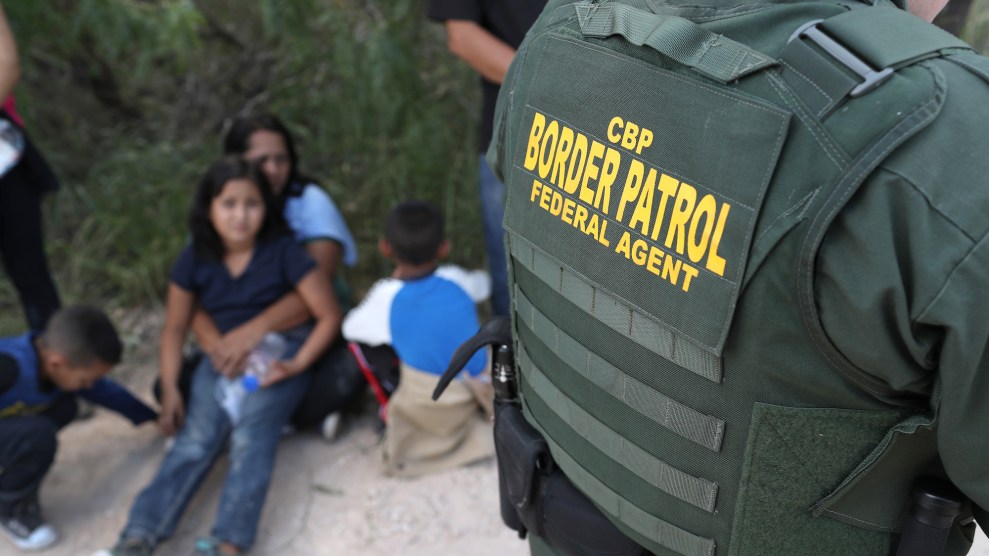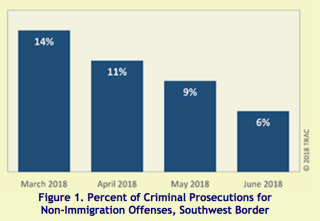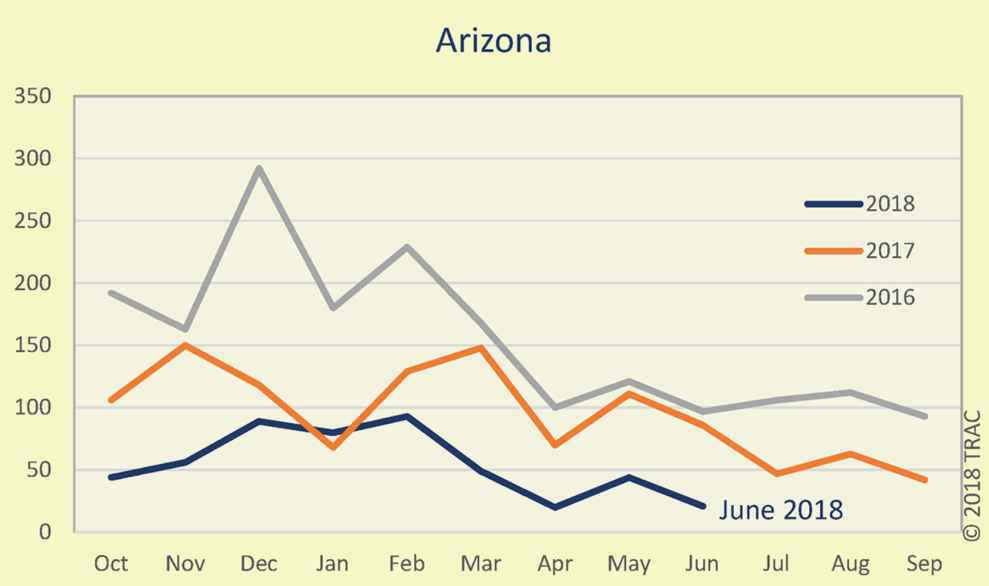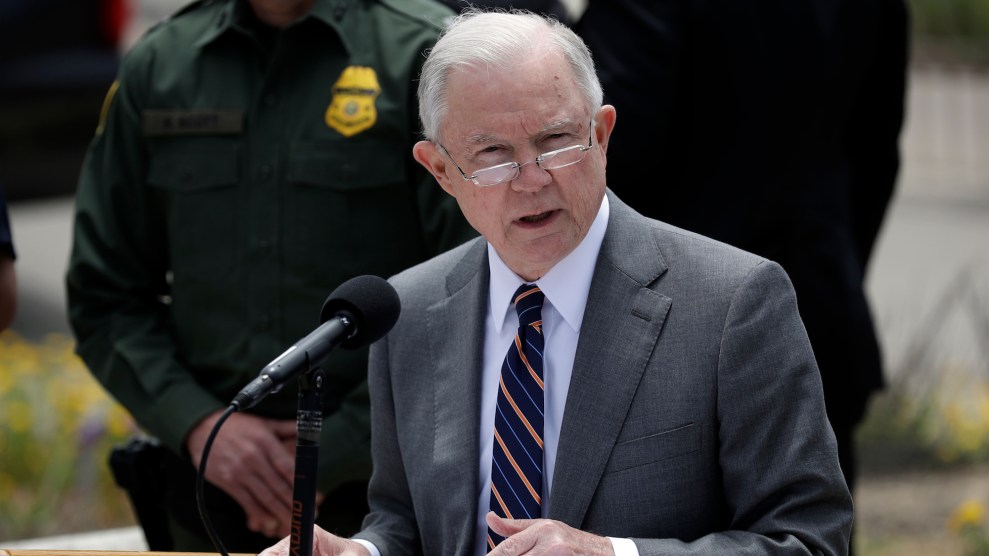
Central American asylum seekers wait as Border Patrol agents take them into custody in June near McAllen, Texas. John Moore/Getty
The Trump administration’s push to prosecute people for crossing the border without authorization is limiting the government’s ability to prosecute people who commit other crimes, according to government data obtained by the Transactional Records Access Clearinghouse, a research center at Syracuse University.

TRAC’s analysis of the data shows that the number of immigration-related prosecutions filed along the border spiked by 79 percent between March and June. During the same period, the number of non-immigration prosecutions declined by 35 percent. Non-immigration offenses accounted for just 6 percent of prosecutions in districts along the Mexican border in June, compared to 14 percent in March.
TRAC concluded that unless non-immigration crime is “suddenly less prevalent” than before, the figures imply that more non-immigration crimes in the border regions are going unprosecuted. In Arizona, for example, the data show that drug prosecutions under a statute that is usually enforced by US Customs and Border Protections have declined sharply in recent months.

Drug prosecutions under 21 USC 846, a statute generally enforced by CBP
TRAC
In June, CBP referred 11,086 new cases to the Justice Department for federal prosecution along the border with Mexico, the highest number ever, according to Sarah Pierce of the Migration Policy Institute. That was up from 9,216 in May and 6,368 in March, even though slightly more people were apprehended crossing the border in March than in June.
The increase in immigration prosecutions accelerated after Attorney General Jeff Sessions’ announcement of a new zero-tolerance policy in April, which sought to prosecute all illegal border crossers. The administration did not in fact start prosecuting everyone caught at the border, but it did break with precedent in prosecuting parents who arrived with children. That change caused the family separation crisis by turning children into “unaccompanied minors” who were placed in the custody of the Department of Health and Human Services.
















